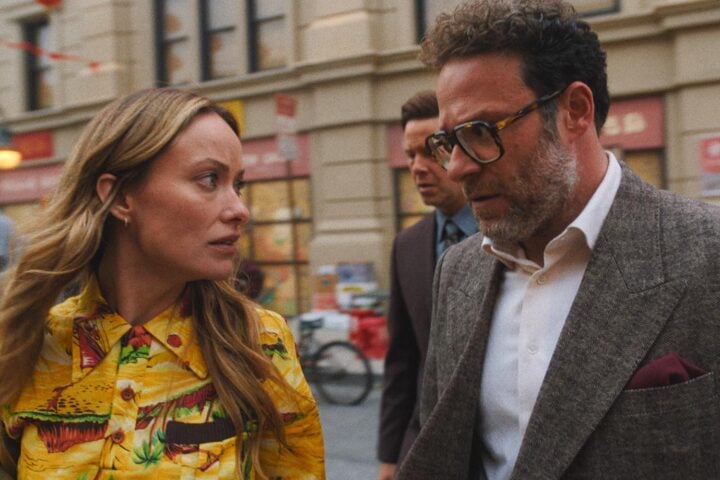It’s tempting to call The Fabelmans the most personal film that director Steven Spielberg has ever made simply because it recreates scenes from his own childhood in the suburbs of New Jersey, Arizona, and northern California. But popular entertainments like Jaws, the Indiana Jones films, and Jurassic Park still pulse with the passion of a filmmaker who’s profoundly attuned to movement, which makes them feel no less personal than more overtly “serious” films like Schindler’s List and Munich. Even if the subject of a film isn’t necessarily the closest to his heart, they all evince the same cinematic savvy and emotional warmth that’s managed to capture the imaginations of millions of moviegoers across the word for decades.
Spielberg lays out the beginnings of that sensibility in The Fabelmans, which begins with his proxy, Sam Fabelman (played by Mateo Zoryon Francis-DeFord as a child, then Gabriel LaBelle as a teenager), witnessing a train crash in Cecil B. De Mille’s Oscar-winning The Greatest Show on Earth. It’s a terrifying moment that sticks with him enough that he seeks to recreate it, and, with the encouragement of his mother, Mitzi (Michelle Williams, giving a performance of astonishing range and emotional intensity), he shoots a miniature train crash at home after his father, Burt (Paul Dano), gets the burgeoning filmmaker a train set for Hanukkah that year.
The subsequent, increasingly ambitious projects that Sam takes on—including a mummy picture, a western inspired in part by John Ford’s The Man Who Shot Liberty Valance, and then a WWII epic titled Escape to Nowhere—all suggest the formation of the kind of showmanship and instinct for popular entertainment that would go on to solidify Spielberg’s legend.
But by going back to his beginnings and dramatizing the tougher aspects of his upbringing—the frequent cross-country moves necessitated by his engineer father’s vocation; the discovery of his mother’s infidelity with a family friend, named Bennie here (and played by Seth Rogen); the anti-Semitism he encountered as a high-school student in California; and so on—Spielberg is addressing a much-remarked-upon thread throughout many of his films regarding broken families and the recapturing of childhood innocence. It’s not difficult to draw a straight line from Burt, a deeply practical man who exuded less than whole-hearted enthusiasm for his son’s burgeoning artistic interests, to the similarly tunnel-visioned Roy Neary in Close Encounters of the Third Kind or even Frank Abagnale Jr.’s detached father in Catch Me If You Can.
But it was his mother—a virtuoso pianist who gave up a concert career to raise her children—who was much more instrumental in shaping Sam’s filmmaking desires. The Fabelmans sets up the clan’s dynamic as a split between science (his father) and art (his mother), with Uncle Boris (Judd Hirsch), who spent much of his life as a lion tamer for the Ringling Bros. and Barnum & Bailey Circus, acting as a raucous spokesperson for the pursuit of an artistic passion at all costs. (Hirsch’s cameo is a showstopper, though not as much as David Lynch’s as John Ford, who offers Sam some valuable advice at a crucial time in his journey.) That just makes what he sees as his mother’s betrayal of the family, upon discovering the extramarital affair with Bennie while he’s editing footage of a camping trip, even more devastating. The moment represents Sam’s introduction to an adult world of emotional complexity just beyond his grasp as a teenager.
It’s a world that many have accused Spielberg of trying to actively deny across his work, and in The Fabelmans there’s a certain sense that the filmmaker isn’t so much interrogating his artistic beginnings as recalling it all through a fondly nostalgic lens. For better or worse, Spielberg can’t help but be a slick entertainer even when he’s diving into his own sometimes painful memories.
Nevertheless, there’s value in seeing Spielberg grapple with his artistic beginnings, especially when they occasionally yield fascinating questions about the power of cinema as a force for revelation and obfuscation. A split-second fantasy mirror image of Sam filming his sisters’ heartbroken emotional reactions upon hearing that Burt and Mitzi are getting a divorce economically but powerfully suggests a young artist contemplating questions of sensitivity when it comes to rendering a character’s emotional experience on screen.
And when he uses an assignment putting together a montage based on footage he filmed of his high school’s beachside “Ditch Day” to embarrass one of his bullies and elevate another bully to the level of a god, Sam gets a blunt-force lesson in cinema’s dangerous potential when both people react negatively to his manipulations. Such moments reveal The Fabelmans as thankfully more than just yet another “love letter to cinema,” but also an intermittently provocative investigation of the medium from one of its great masters.
Since 2001, we've brought you uncompromising, candid takes on the world of film, music, television, video games, theater, and more. Independently owned and operated publications like Slant have been hit hard in recent years, but we’re committed to keeping our content free and accessible—meaning no paywalls or fees.
If you like what we do, please consider subscribing to our Patreon or making a donation.




